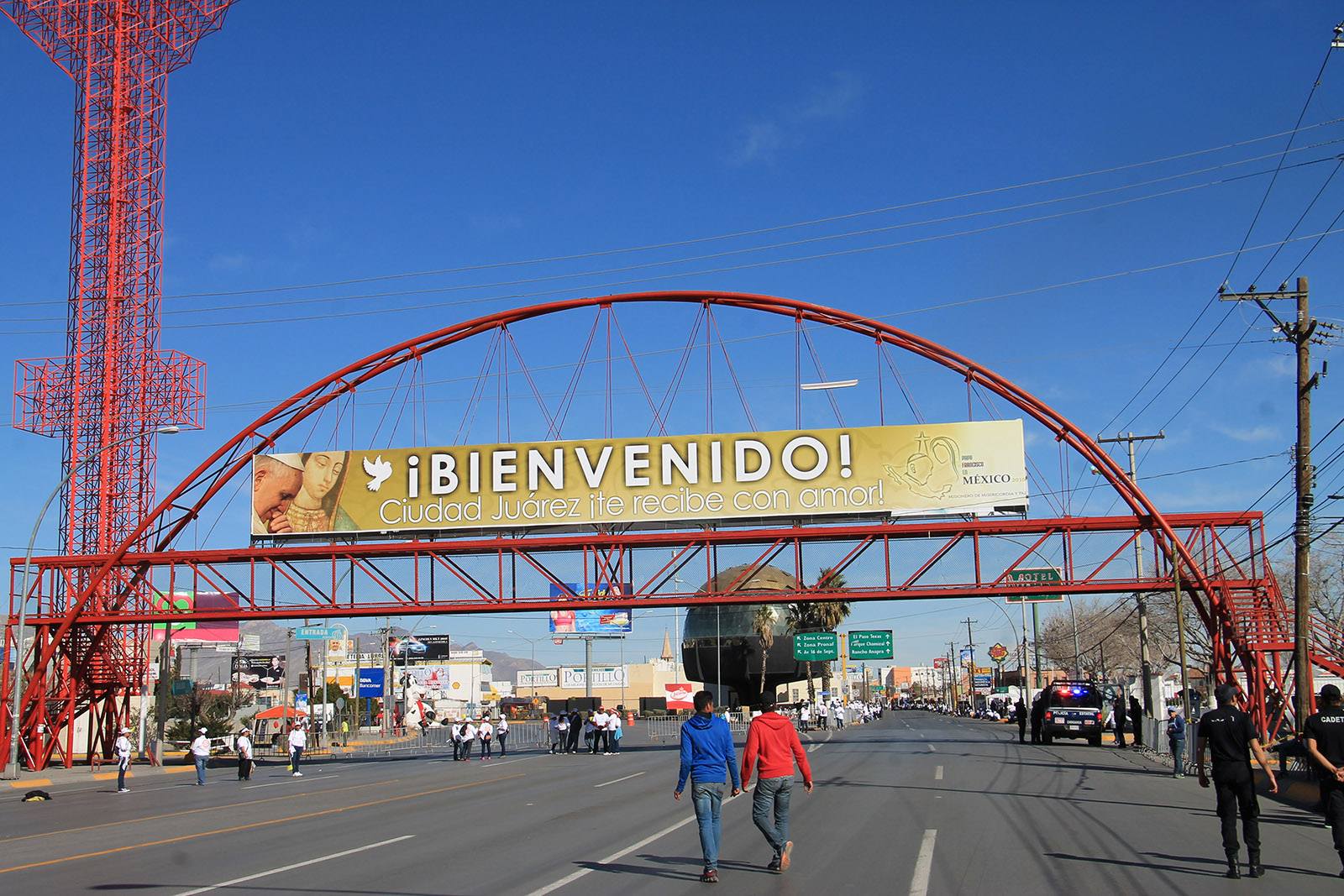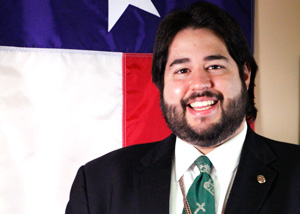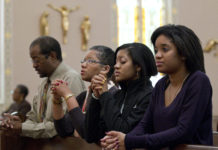
When I went to Ciudad Juárez this year, I wasn’t simply covering Pope Francis’ apostolic visit. For me, in a way, it was a chance to return home.
Like many kids, I spent many of my summers with my grandparents. Mine happened to live in Juárez. My parents would send me and my brother across the border in the summertime, and as a family we’d all go visit for Christmas.
I remember my grandmother insisting I only speak Spanish to her. My grandfather was a little more relaxed about that. Knowing I was a history buff, my great-uncle would take me around the city and show me famous sites. As teenagers my cousins and I would go to a local park at night to buy some of the best hot dogs we’d ever eaten in our lives.

By the time I got to college, the opportunities to visit decreased. And when we did go back, it was different — that’s when the violence started to pick up. We went straight to the family property and didn’t leave. I recall my cousins inviting me to go out with them, and when they asked why I didn’t want to go, I told them simply, “Because it’s Juárez.” I’ll never forget their response: “We’re not going to let a couple of [expletive] with guns keep us from enjoying ourselves.”
At the time I thought they were crazy, (and granted, they probably are), but there was something deeper going on. Drug-related violence has claimed thousands of lives in the last decade, including that of one of my cousins (who was not a part of the aforementioned story). But suddenly my cousins, like many Juárenses, decided to stop living in fear. A spirit rose in the city, and they refused to be controlled by the cartels.
Before last month, the last time I was in Juárez was right before I moved to Phoenix. When I went back, I noticed this spirit in all of the people, not just my family. For the first time in more than a decade, I felt comfortable walking on the street. The people were welcoming. When I visited the church near my family’s home, there were locals distributing commemorative posters of the papal visit. When I asked them about it, they told me they wanted the pilgrims to know that they were welcome. They also told me of their plans to distribute food and water the day of the actual visit.
I took a personal pilgrimage to the parishes of the diocese with designated Holy Doors of Mercy for the jubilee year. Two of them happen to have a special meaning to me. The first, San Lorenzo (St. Lawrence), is down the street from my family home. I have a great-uncle interred there, and my relatives have been attending that church for generations. The other, Nuestro Señor de Misericordia (Our Lord of Mercy), isn’t too much farther, and my grandparents are interred there. I had the chance to pay my respects at both parishes. And on a personal note, though my toddler daughter never met them, I brought her with me so she could also pay her respects, in her own way.
Pope Francis is known for reaching out to those on the peripheries. Here in the U.S. we think of his visit being significant because it’s a border city. And it’s true, this is one of the reasons cited for picking Juárez as one of his stops, and celebrating the Mass on the border signified that.
But in his homily he also addressed the root of the problem – the violence that forced people to migrate, just as they are fleeing other parts of the world. The Holy Father’s visit to the city brought hope and healing to a broken and suffering city. When I spoke to those that live in Juárez, and to whom this is just an everyday reality, I heard two words: “alegría” and “esperanza” — hope and joy. During his visit to Mexico, he was referred to as “Misionero de Misericordia y Paz,” — “Missionary of Mercy and Peace.” And that’s what he brought to Mexico, to Juárez.




![[VIDEO] Make Sunday feel like Sunday again](https://www.catholicsun.org/wp-content/uploads/2021/04/2021-YOUTUBE-BISHOP-MESSAGE-THUMBNAIL-ENGLISH-218x150.png)

